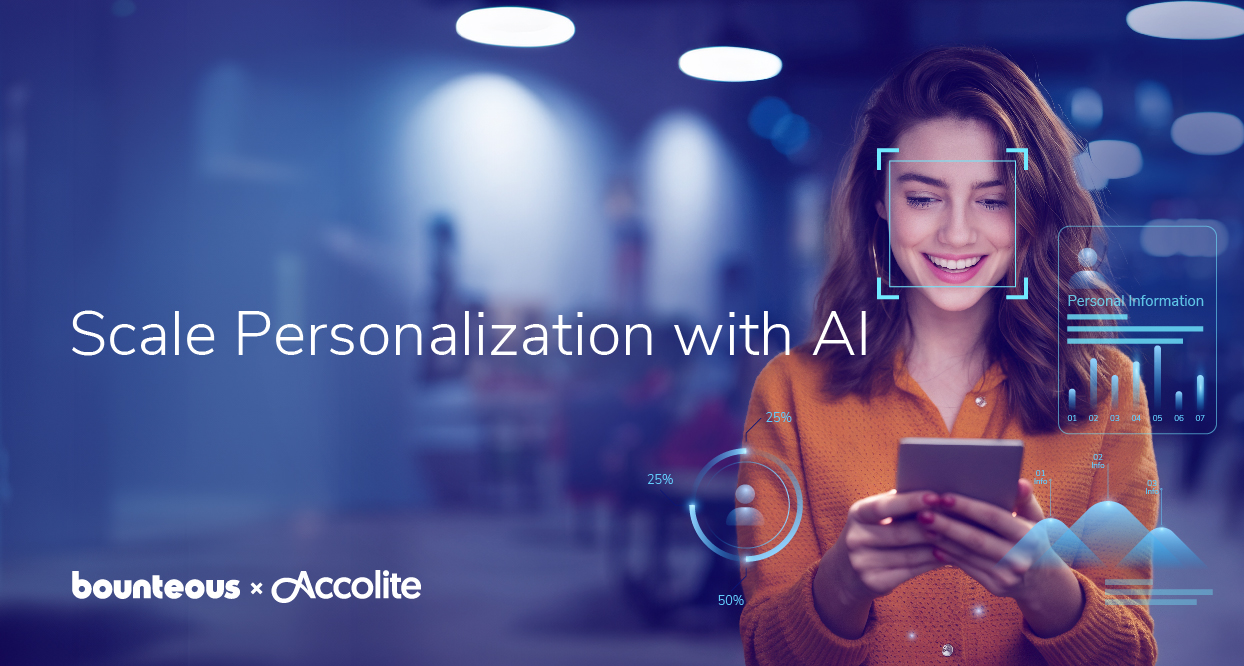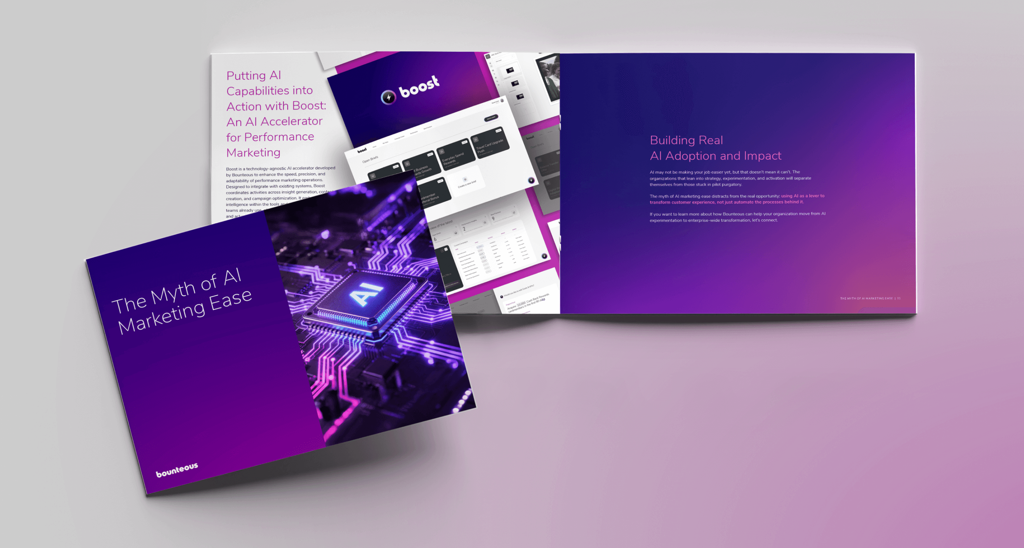Leveraging AI for Scalable Personalization for Marketing Success

Efficiency and customer-centricity are more vital than ever for businesses to succeed.
Reports indicate that 66% of consumers expect companies to understand their unique needs and expectations, and 52% expect all offers to be personalized. Harnessing AI for personalization at scale presents a unique opportunity to streamline operations and enhance customer satisfaction.
Artificial Intelligence for Increased Productivity
AI-driven personalization enhances resource allocation by reducing manual effort and optimizing productivity. Companies using AI for personalized emails experience a 41% boost in click-through rates. Automated content recommendations adapt based on engagement, allowing focus on strategic initiatives and improving marketing efficiency. AI also automates audience segmentation and A/B testing, keeping strategies data-driven and agile, resulting in an average of 20% increase in conversion rates.
Data Accuracy for Better Personalization
Accurate data is key for AI success, with 94% of organizations seeking more value from their data. Machine learning boosts data processing efficiency by 20%, helping retailers analyze purchase patterns and improve sales forecast accuracy by 25%. Such insights drive data-driven decisions, optimizing marketing spend and enhancing ROI. Predictive analytics enable marketers to anticipate customer needs, refine promotions, and guide product development for a better customer journey.
Stakeholder Alignment for Strategic Personalization
Don’t forget that to make AI work best for your company, you will need to have buy-in from your organization and create a personalization mindset across functions.
Aligning internal stakeholders is essential for unlocking the full potential of your data, AI, and personalization strategies. Businesses report that AI-driven dashboards and real-time data sharing have strengthened cross-functional collaboration, aligning marketing objectives with overarching business goals. These tools demonstrate how marketing initiatives contribute directly to sales pipelines and financial outcomes.
For more insights on achieving organizational buy-in for personalization, read our blog, “Create a Culture of Personalization with Organizational Buy-In.”“Create a Culture of Personalization with Organizational Buy-In.”
The Benefits of Scaled AI-Driven Personalization
The scalability benefit of AI-driven personalization comes from its ability to analyze vast amounts of data and make individualized decisions for millions of users simultaneously, something that would be impossible through manual processes. Here’s how it works and why it’s impactful:
Automated Data Processing at Scale
- Data Collection and Integration: AI systems gather and integrate data from various sources—websites, social media, past purchases, interactions, etc.—all in real time. Traditional systems might be able to process this data, but they can’t match the speed and depth of insights that AI brings.
- Efficient Processing of Large Datasets: With AI models running in the background, companies can handle massive datasets without additional resources. Cloud-based AI platforms, for example, can easily scale with storage and computing power to meet rising demands.
Real-Time Personalization
- Dynamic Adaptation: AI algorithms continuously learn and adapt to each user’s behavior and preferences. If a user’s habits or preferences change (for example, their browsing patterns), AI updates recommendations instantly, providing a highly personalized experience without manual intervention.
- Automated Decision-Making: Instead of creating specific rules for every individual or segment, machine learning models automatically adjust and refine their personalization strategies based on live feedback.
Scalability Across Multiple Platforms and Devices
- Omnichannel Consistency: AI systems can unify personalization across different channels (e.g., mobile apps, websites, email), providing a cohesive experience wherever the user interacts. This would be challenging to manage manually, but AI ensures each touchpoint adapts dynamically to the user’s behavior.
- Device and Environment Adaptation: AI can optimize content for different devices and contexts, offering tailored experiences for mobile users versus desktop users, or even adjusting based on location or time of day.
Cost and Resource Efficiency
- Reduced Operational Overhead: AI reduces the need for a large team to manage and implement personalization strategies manually. Once trained, AI models can handle repetitive tasks, freeing up employees for higher-level strategic work.
- Flexible Scaling in Real-Time: AI systems can scale up during high-traffic times (such as a sale or new product launch) to handle the surge in personalized content demands. This elastic scaling is efficient, only using extra resources when needed.
A/B Testing and Continuous Improvement at Scale
- Automated Experimentation: AI enables rapid experimentation with thousands of personalized variations, assessing what works best for different segments and refining recommendations accordingly. This can all happen without requiring human supervision.
- Continuous Learning and Optimization: AI learns from each user’s interactions, updating personalization tactics on its own. Over time, this improves the accuracy of recommendations and keeps personalization strategies up to date with evolving user behavior.
Scaled Personalization Example
An e-commerce platform using AI-driven personalization might adjust product recommendations based on each visitor's unique browsing history, past purchases, and even local trends. For a small site, it’s possible to handle this with basic segmentation and rules, but for a platform with millions of users, AI allows these adjustments to occur for each user in real time, with far greater relevance and at a fraction of the cost it would take to manage manually.
AI-driven personalization scales effectively because it automates and individualizes the user experience across vast user bases, accommodating real-time shifts in user behavior, preferences, and context without the need for manual intervention. This capability not only meets the demands of large audiences but also delivers the kind of hyper-personalized experience that drives higher engagement and customer loyalty.
Embrace the AI Personalization Revolution
AI is transforming personalization, offering scalable, efficient solutions that align with both customer needs and business objectives. By embracing AI, with a focus on data integrity, stakeholder collaboration, and enhanced customer experiences, marketers can effectively navigate this evolving landscape. Embracing these technologies catapults marketing operations forward, ensuring consistently engaging and rewarding customer interactions, shaping the future of marketing success.
For additional insights, download our eBook, "The Future of Personalization," which offers a deeper dive into effective personalization strategies.


